Projects
By making pharmacogenomic information prompt, accessible, and understandable for physicians, The Center for Personalized Therapeutics leads the way in translating genomic discovery to improve care for patients.
“Translating genomic discovery to improve care for patients.”
The Center embarked on its first project in 2011, the 1200 Patients Project, which uses a preemptive medical system model that reduces the use of high risk medications. Later, CPT established the ACCOuNT Project, Impress Trial, PhOCus Trial.
1200 Patients Project
Piloting the use of pharmaco-genomics in routine medical care.
ACCOuNT Project
Examining pharmacogenomic implementation in the context of minority health disparities.
ImpreSS Trial
Implementing pharmacogenomic testing in anesthesia and perioperative medicine.
PhOCus Trial
Studying the importance of pharmacogenomic testing in routine oncology care.
Read More
Read More
Read More
Read More
Personalized Therapeutics Clinic
Expanding access to personalized consultations to high risk patients.
CHABLIS Project
Longitudinal research to promote healthy aging behaviors.
Genetic Diversity Project
Improving pharmacogenomic research in a diverse profile of patients.
Pharmacoeconomics
Optimizing chemotherapy dosage without sacrificing efficacy.
Read More
Read More
Read More
Read More
The 1200 Patients Project
The 1200 Patients Project aims to develop a new model for personalized medical care through preemptive pharmacogenomics.
Enrolled patients provide a single blood sample for analysis, which is genotyped by an in-house CLIA-certified laboratory. Patients’ genetic information is compared to a database of well-substantiated pharmacogenomic research compiled by the 1200 Patients Project team, which is constantly updated to reflect the most current research available. This database is used to determine whether it is likely that a patient will respond positively or negatively to a medication. With patient permission, these results are delivered to enrolled physicians at the University of Chicago through an online portal, termed the Genomic Prescribing System (GPS).
The GPS is designed to be convenient to use, with clear and consistent images and wording, so that pharmacogenomic information can be easily integrated into clinicians’ workflow. Ultimately, the GPS enables physicians to make patient-specific treatment decisions, improving patient outcomes.
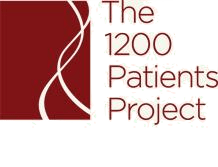
“Finding the Right Medication and Dose”
Adverse reactions to medications are one of the leading causes of death in the United States and many patients take medications that are not effective for them. The information distributed to providers in this study could allow them to identify which patients would experience negative side effects from medications, and to determine which medications would be the most effective for each patient. Pharmacogenomic information can also be factored into dosing algorithms, so that the ideal dose for each patient can be most accurately determined, eliminating the trial-and-error process that is frequently required.
Providers enrolled
Patients recruited
Read More
View Publications
ACCOuNT Project
African American Cardiovascular pharmacogenetics CONsorTium (ACCOuNT) is an NIH-supported, multi-institutional group of physicians, researchers, and patients whose goal is to reduce disparity in precision medicine, particularly for African-Americans. This Translational project aims to explore the feasibility of implementing preemptive pharmacogenomic result delivery for African-Americans in the inpatient setting across multiple institutions.
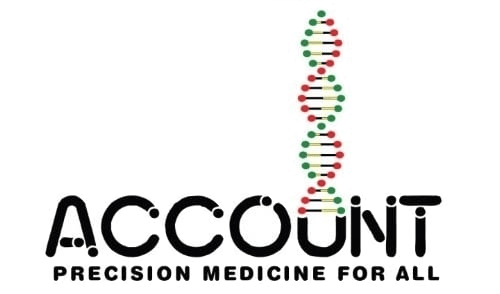
“Precision Medicine for All”
The ACCOuNT Translational project is led by principal investigator Dr. Peter O’Donnell (University of Chicago) and site leads Drs. Kevin O’Leary (Northwestern University) and Edith Nutescu (University of Illinois at Chicago). Additionally, the ACCOuNT Translational project is supported by the Center for Personalized Therapeutics and other members of ACCOuNT.
1. Database
Incorporate race-specific SNPs and recommendations into the GPS.
2. Cohort
Create a cohort of African-American patients receiving patient care using GPS.
2. Access
Access race-specific recommendations via GPS in consortium institutions.
Self-identified African-American patients who enroll in the ACCOuNT Translational project provide a blood sample which is sent to the Center for Personalized Therapeutics’ CLIA-certified laboratory for genotyping. Genotyping results and clinical decision support are made available within the Genomic Prescribing System (GPS).
Providers who staff inpatient services (physicians, pharmacists, nurse practitioners, and physician assistants) are eligible to enroll for the ACCOuNT Translational project and access patient genotyping results and pharmacogenomic recommendations via the GPS. Each hospital admission at which a preemptively genotyped patient is treated by an enrolled provider is evaluated. Data captured includes provider use of the GPS, as well medications prescribed or administered during the course of the admission. The primary outcome of interest is frequency of GPS use by study providers.
Quick Link
Read More
View Publications
ImPress Trial
The goal of the ImPreSS Trial is to develop a model of implementing point-of-care pharmacogenomic decision support in the perioperative care setting.
ImPress Trial has the potential to transform anesthesia and critical care by integrating genomic information into clinical practice, ultimately leading to improved patient care, enhanced pain management, and safer medication administration.
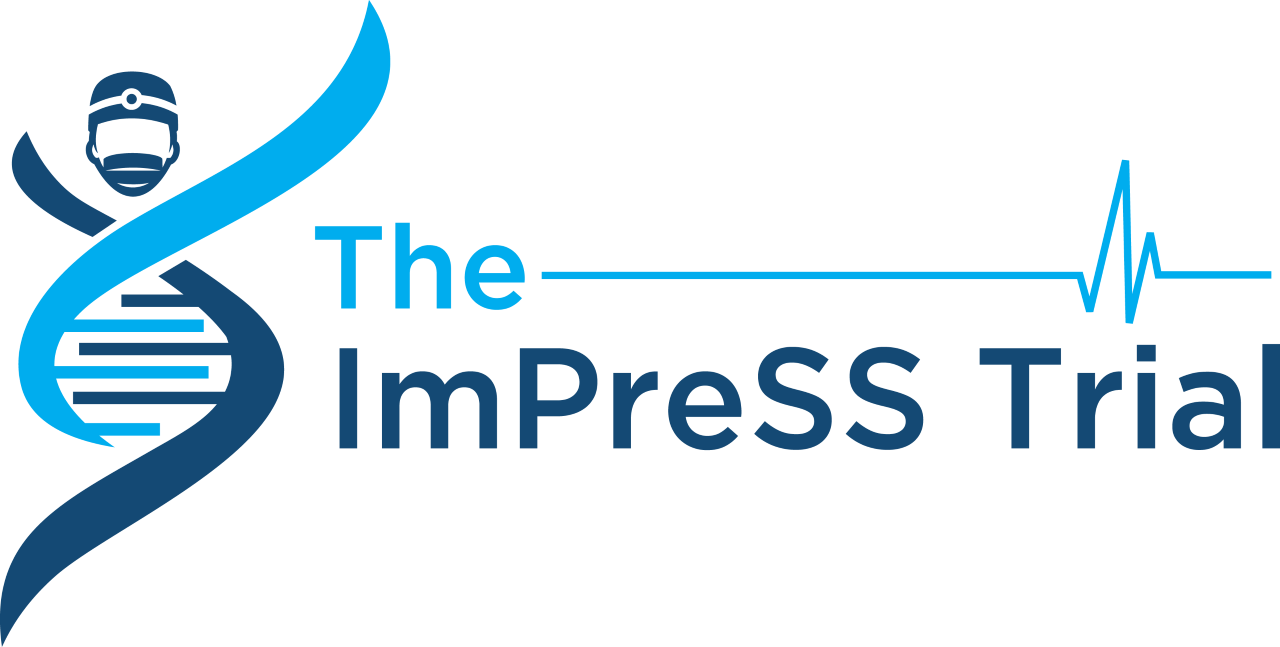
To “ImPreSS”
The ImPress Trial involves genotyping enrolled patients and delivering their genomic results through an online web portal integrated into the institutional electronic medical record. Providers in the pharmacogenomics arm will have access to this information during the patient’s surgical admission, allowing for tailored medication choices based on individual genetic profiles.
By tracking medication use and comparing the rate of high pharmacogenomic risk drugs between the two study arms, the primary outcome will provide valuable insights into the effectiveness of pharmacogenomics in guiding treatment decisions.
Quick Link
Read More
View Publications
PHOcUS Trial
Studying pharmacogenomic testing in Oncology care
Over 650,000 patients per year are treated with chemotherapy, with the majority reporting side effects. The goal of the PhOCus Trial is to determine whether delivering pharmacogenomic results to oncology providers will help reduce incidence of severe chemotherapy related side effects and toxicities.
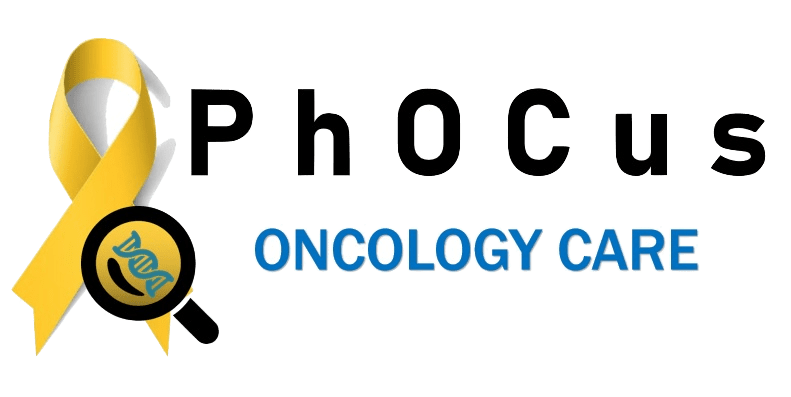
Chemotherapies such as fluoropyrimidinesand irinotecan have well-known pharmacogenomic associations, and preemptive pharmacogenomic testing prior to treatment offers the potential to identify patients at increased risk for toxicities. The implementation of Pharmacogenomic Testing in Oncology Care is a project whose goal is to provide personalized chemotherapy dosing in oncology patients, which we hypothesize will result in improved treatment tolerability as well as outcomes for cancer patients.
In PHOcUS Trial, oncologists can access the genetic makeup of each patient via genomic testing. With this valuable information, doctors can tailor chemotherapy unique to each patient, thus minimizing the adverse effects. Our “PHOcUS” is to take each patient’s genetics into account for optimized treatment outcomes.
Polymorphisms in the DPYD gene can result in enzyme deficiency leading to an increased risk of severe, sometimes fatal toxicities in up to 10% of patients.
Quick Link
Read More
View Publications
Personalized Therapeutics Clinic (PROTECT-Rx Trial)
“Evaluating the Effectiveness of a Personalized Therapeutics Clinic on Drug-Drug and Drug-Gene Interactions,” or the “Personalized Therapeutics Study” for short, combines the use of pharmacogenomics with the establishment of the novel Personalized Therapeutics Clinic (PTC) at UChicago Medicine.
Participants in this study have the opportunity to undergo genetic testing and have subsequent results analyzed to determine potentially-adverse drug-drug interactions (DDIs) and drug-gene interactions (DGIs). For those participants whose DNA is genetically tested, they also have the opportunity to attend a virtual appointment(s) with a healthcare provider from the PTC who will discuss with participants the genetic results and their implications.
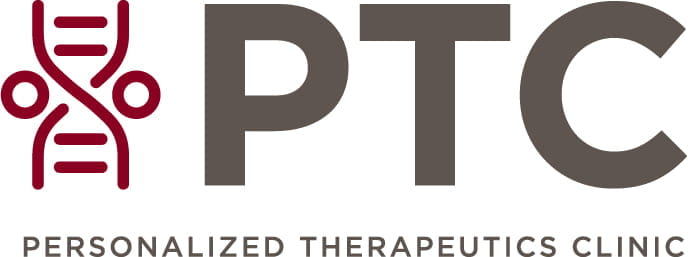
Genetic Testing In Routine Healthcare
As an esteemed clinical study, patients voluntarily participating in this initiative will be assigned randomly to one of three distinguished cohorts. Irrespective of their group assignment, all participants are eligible to avail themselves of genetic testing and virtual appointments with the Personalized Therapeutics Clinic (PTC) after a duration of nine months from enrollment.
Controlled Group
Patients continue with regular care under the guidance of their attending physicians, with no genotyping or engagement with the PTC.
Partial Intervention Group
Patients receive regular care but have the privilege of attending virtual appointments with the PTC, without genotyping.
Full Intervention Group
Patients receive regular care, undergo DNA genotyping, and benefit from virtual appointments with the PTC.


Clinical Trials
Customized Healthcare that Suits Your Genetics
Regardless of the group to which patients are assigned, everyone have the benefit of being offered genetic testing and PTC virtual appointments after the study. Everyone’s genome is unique, and we are excited to present the patients of UChicago Medicine with this opportunity to better understand and govern their healthcare. By providing this study to our patients, we hope to better understand current prescribing practices, identify the convenience of a personalized therapeutics clinic, and ultimately decrease potentially-dangerous DDIs and DGIs.
Visit ClinicalTrials.gov
Read More
C-PAIN (Personalized Treatment of Cancer Pain)
Our Web Portal
Dedicated to a data-driven approach, most projects led by The Center of Personalized Therapeutics proudly endorse the Genomic Prescribing System (GPS), a novel web-based portal used by physicians which display interactive, patient-specific, pharmacogenomic results in the form of succinct, electronic clinical consults. GPS has already achieved remarkable success in diverse initiatives such as the 1200 Patients Project, the ACCOuNT Project, ImPreSS Trial, PhOCus Trial, and the Personalized Therapeutics Clinic (PROTECT-Rx Trial).
Genome Prescribing System (GPS)
Contact Us for Access
Join us on this remarkable journey as we continue to revolutionize personalized therapeutics.
Phone
(773)-753-1200
Open Hours
Mon – Fri: 9:00 AM – 4PM
Address
5841 South Maryland Avenue, MC 2115
